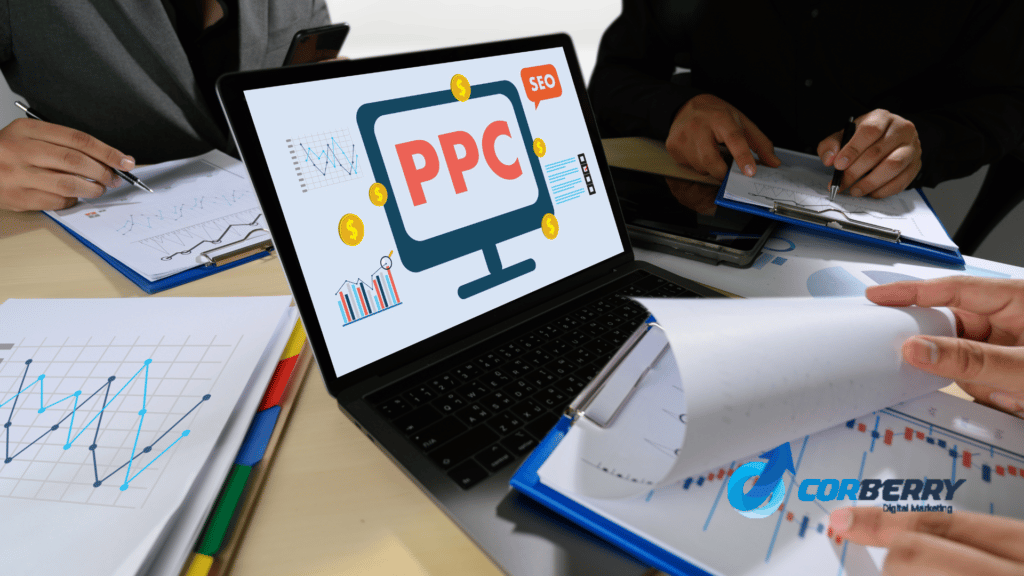
When you identify the KPIs you need for your PPC campaigns, you have to remember that they are not exclusive metrics. A lot of them work together, like puzzle pieces. You need to put together the pieces to have a bigger and better picture. This helps you get a full understanding of how your PPC campaign is performing.
What this tells us is that we have to make sure we work on improving all of these KPIs equally. Some advertisers get caught up with improving on just one and lose sight of the others.
With that being said, here are the 10 important PPC KPIs that you need to track for your campaign.
10 Important PPC KPIs You Need to Track
- Impressions
For ads to be successful, they have to show up on the search results of your target audience. Every time your ad shows up to the right people, it’s called an “impression.”
This isn’t exactly an indication of how “well” your ad is performing. It doesn’t guarantee that people really paid attention to it, or that they had any interaction with it. But, it is a good indicator of visibility.
It is also a good indicator of future ad performance. After all, an ad can’t be successful if nobody sees it.
- Impression Share
This is one of the simplest PPC metrics to track. It simply tells you how many people saw your ad. Like impressions, this is not an indicator of your campaign’s success.
What it does tell you is how you’re performing against your competitors. This gives you a good idea of whether you should bid more aggressively against competitors or not. You can check out your impression share with Google Ads.
Related Read: How to Set Up Google Ads: The Ultimate Step-by-Step Guide
- Cost Per Impression
This refers to the rate that an advertiser has agreed to pay per 1,000 views of a particular ad. Just like with impressions, the user doesn’t need to click on an ad, they only need to see it.
This can also be called cost per thousand impressions or CPM (which still means cost per impression or CPI).
To get the CPI or CPM, you’ll need a few formulas:
- Cost of Campaign = Total Impressions/1000 x CPM
- Total Impressions = Cost of Campaign/CPM x 1,000
- CPM = Cost of Campaign/Total Impressions/ 1,000
- Clicks
This PPC KPI simply measures how many people clicked your ad. It can be a good indicator of the possible success of a campaign, but it shouldn’t be the only factor you consider.
Aside from that, it’s also a good indicator of whether your target audience resonates with the ad. After all, if they’re not interested, they won’t click on it.
Related Read: PPC for Small Businesses – Strategies for 2022
- Click Through Rates
This refers to the percentage of people who click your ads and go to your website. These are the users who interacted and engaged with your ad and were directed to your website.
A good rule of thumb to remember is that a high click-through rate, or CTR, is a good sign. It means that your ad is performing well. This can also give you insight as to how you should make future ads. For example, what did you do differently with this ad for it to perform well?
To calculate the click-through rate, you’ll need to divide the number of clicks by the impressions and then multiply it by 100.
- Quality Score
This is an indicator of how reliable your business is in sharing relevant and high-quality information. Quality score is a PPC KPI that was made by Google, so it can be a bit complicated to master.
When your quality score is high, Google Ads rewards you by giving you a discount on your ad costs. Google focuses on bringing relevant and high-quality content to its users, so if you’re contributing to that, it will favor your content.
On the other side of the coin, if you have a low-quality score, you’ll need to pay more for your ads.
Your quality score is determined on a scale of 1 to 10 with 10 being the highest. Naturally, 5 is the average. If you score a perfect 10, you’ll get a 50% discount on your ads. If you score a 1, you pay 400% more for your ads.
- Ad Rank
This is simply the position of an ad on the page. If your ad ranks number 1, your ad will appear at the top position of the search engine result pages. You can get ad rank by multiplying your quality score by the maximum cost per impression.
- Cost Per Click
Cost per click is a model where advertisers pay a certain amount when a user clicks on the ad. In cost per impression, the ad only needs to pop up on the user’s screen but for this one, users need to click on the ad.
Simply put, this determines how much it costs you when someone clicks on your ad. To calculate the cost per click or CPC, you only need to divide the total cost of your clicks by the total number of clicks.
Related Read: How to Use the Google Ads Performance Planner: The Complete Guide
- Cost Per Acquisition
This is also called cost per action. Unlike cost per click where users only need to click on the ad, this one determines how much you spent for users to do what you want them to do with the ad. These actions vary depending on the ad’s goal. For example, it can be subscribing to a newsletter, purchasing software, or purchasing a product.
This is an important metric to track because it helps you understand how your budget is performing.
To calculate for cost per acquisition, divide your variable marketing cost by the number of users who did the action. It’s important to note that these 2 variables must be within the same time period.
Related Read: Top 10 PPC Tools in 2022
- Conversion Rate
As for conversion rate, this measures how many people clicked on your ads, and then became customers. For the previous one, CPA, you just want them to do a certain action. This one focuses more on how many users were “converted” to customers.
A good rule of thumb to remember is that the better your conversion rate, the more money you’re making off of your campaign. Here are conversion rate benchmarks for different industries.
There are 3 formulas that you can use to calculate the conversion rate:
- Conversion Rate = Total number of conversions / Total number of sessions * 100
- Conversion Rate = Total number of conversions / Total number of unique visitors * 100
- Conversion Rate = Total number of conversions / Total number of leads * 100
- Return on Investment
This last PPC KPI is one of the most important KPIs you should track during your PPC campaign. This helps you evaluate the efficiency or profitability of your PPC campaign and compare it with other investments.
To calculate return on investment or ROI, you simply need to divide the benefit or return of an investment by its cost.
Related Read: SEO vs PPC: Which Is Better for ROI?
Key Takeaway
Each of these PPC KPIs is all helpful in its own regard. But no amount of KPI tracking will be useful for your PPC program if you don’t have a clear goal in mind. You have to first understand what you want to achieve with your campaign for you to be able to clearly determine whether you succeeded or not.
These key performance indicators can help you measure the success of your campaign, as well as help you identify strengths and weaknesses. These lessons can help you improve your future campaigns.


